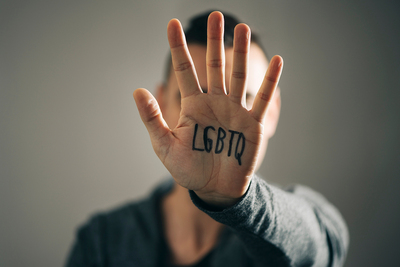
Co-occurring disorders can impede the recovery process for LGBTQ addicts.
Adults who identify as a “sexual minority” are more than twice as likely as their heterosexual peers to use illicit drugs over the course of a year, according to the National Institute on Drug Abuse (NIDA). Even worse? Substance abuse doesn’t exist in a vacuum. LGBTQ addicts are more likely to suffer from co-occurring disorders, as well.
Here’s a closer look at what co-occurring disorders are, why they’re common within the LGBTQ community, and what this means when it comes to treating LGBTQ substance abusers.
What Are Co-Occurring Disorders?
According to Psychology Today, the term “co-occurring disorders” describes “the presence of both a mental health and a substance use disorder. For example, a person may be abusing a narcotic and also have bipolar disorder.”
Common co-occurring disorders in the LGBTQ community include:
- Depression
- Schizophrenia
- Bipolar disorder
- Anxiety disorders
- Obsessive-compulsive disorder
- Post-traumatic stress disorders
- Personality disorders
- Attention deficit hyperactivity disorder
- Eating disorders
In addition to abusing illicit drugs, LGBTQ members are more likely to use (and abuse) tobacco and alcohol. They also have a higher risk of suicidal thoughts and suicide.
Furthermore, LGBTQ members may also be vulnerable to compulsive behaviors known as process addictions, which interfere with normal living and lead to negative consequences. These include everything from sex, gambling, and porn addictions to exercise, video game, and work addictions.
Not only are people with co-occurring disorders more likely to experience “more severe and chronic medical, social, and emotional problems” than others, but they’re also more vulnerable to psychiatric distress, worsening symptoms, and relapse. Because of this, continues Psychology Today, “Co-existing conditions often require longer treatment, have more crises, and progress more gradually in treatment.”
Treating LGBTQ Co-Occurring Disorders
And that’s assuming that co-occurring conditions are properly diagnosed and treated in the first place. Says the Substance Abuse and Mental Health Services Administration (SAMHSA), “In many cases, people receive treatment for one disorder while the other disorder remains untreated. This may occur because both mental and substance use disorders can have biological, psychological, and social components. Other reasons may be inadequate provider training or screening, an overlap of symptoms, or that other health issues need to be addressed first.”
Just because it’s complicated, however, doesn’t mean it’s futile, especially when you consider the implications of not seeking treatment.
“The consequences of undiagnosed, untreated, or undertreated co-occurring disorders can lead to a higher likelihood of experiencing homelessness, incarceration, medical illnesses, suicide, or even early death,” continues SAMHSA.
Enter integrated treatment.
About Integrated Treatment for LGBTQ Addicts
The advantages of integrated treatment for LGBTQ substance abusers are manifold. “With integrated treatment, practitioners can address mental and substance use disorders at the same time, often lowering costs and creating better outcomes. Increasing awareness and building capacity in service systems are important in helping identify and treat co-occurring disorders. Early detection and treatment can improve treatment outcomes and the quality of life for those who need these services,” says SAMHSA.

Integrated treatment puts an addiction-free life within reach.
Specifically, these outcomes include reduced substance use and abuse; improvements to psychiatric symptoms and functions; fewer hospitalizations; improved housing stability; and reduced arrests—all adding up to better lives for those in long-term recovery.
For LGBTQ substance abusers, meanwhile, the integrated treatment imperative is even more pronounced. Why? Because integrated treatment also acknowledges the unique underlying causes associated with increased risk of substance abuse and co-occurring disorders within the LGBTQ community, such as socialization surrounding substance abuse, homophobia, social prejudices, daily stressors, family issues, and deficiencies in the health care system.
The takeaway for LGBTQ individuals and the people who love them? Finding a substance abuse treatment program with expertise in working with LGBTQ-specific issues, including co-occurring disorders, can mean the difference between relapse and recovery.
We’re Here to Help
Contact us at Harris House today to learn more about our effective St. Louis drug rehab programs targeted to the needs of LGBTQ substance abusers.







